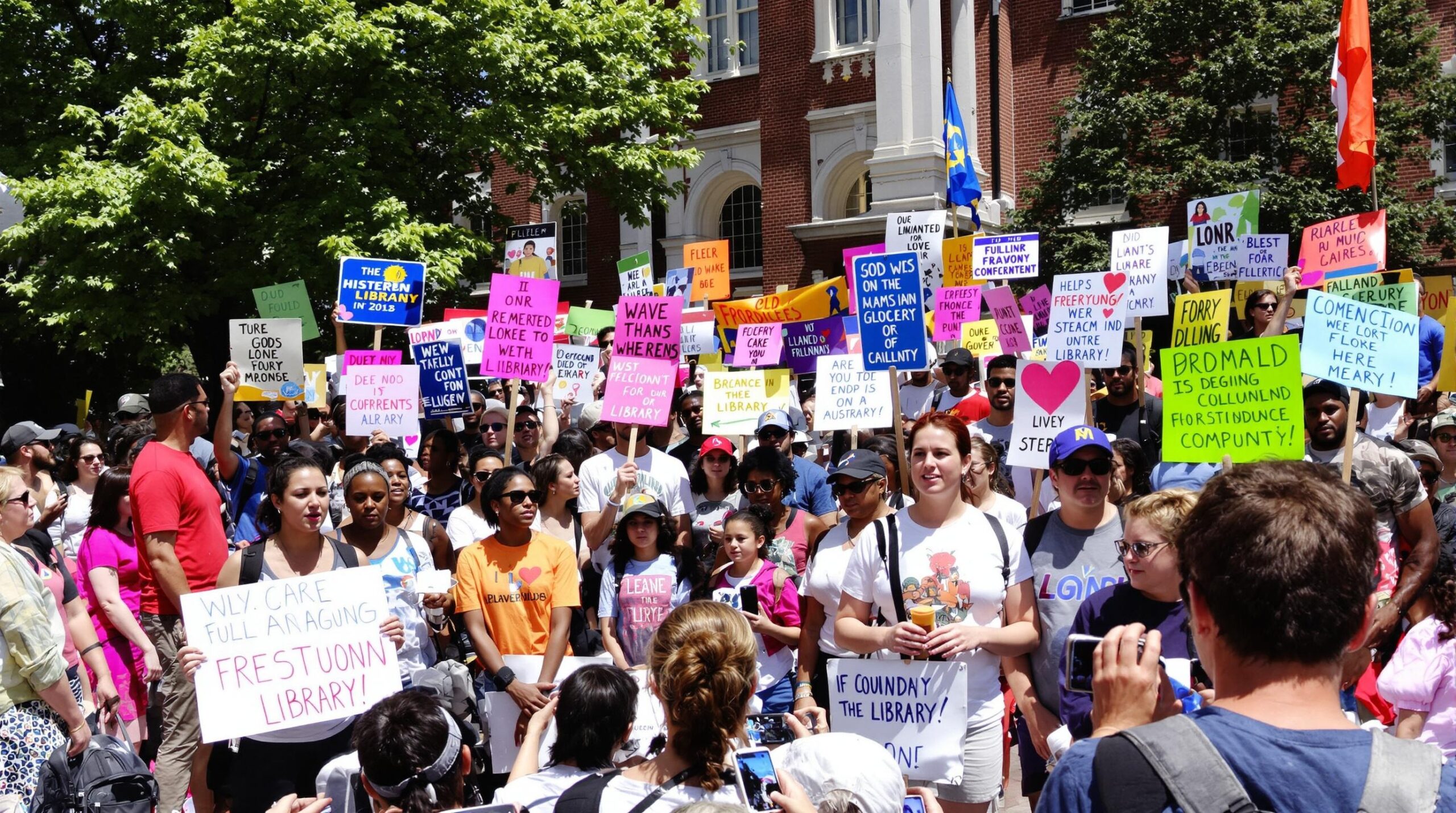Local Community Rallies to Save Historic Library from Closure
The vibrant heart of many towns often beats in their beloved libraries. One such historic library now faces a threat of closure. However, the local community is coming together to fight for its preservation. The rally to save the library demonstrates the value residents place on culture and shared history.
A Library Steeped in History
The century-old building stands as a symbol of local pride and learning. Generations have passed through its doors, discovering stories and finding inspiration. Its architecture reflects a bygone era, mixing ornate ceilings with classic wooden shelves.
Citizens have long considered this library a central gathering place. Many residents remember childhood visits and the excitement of borrowing their first book. The library’s staff have shared their knowledge with thousands, further weaving the library into the town’s fabric.
Local heritage groups have even documented the library’s importance in archives and town records. This proves its value transcends mere bricks and mortar. The building represents a legacy that unites past and present generations.
Financial Struggles Prompt Closure Threat
Despite its significance, the library now faces unprecedented challenges. Funding shortfalls have made daily operation difficult. Rising maintenance costs have strained municipal budgets, forcing officials to consider closure to cut expenses.
Local government representatives have cited declining revenue and shifting priorities. They argue that resources must support essential services first. Unfortunately, this puts cultural institutions like libraries at risk during tough budget cycles.
Residents voiced concerns that closing the library would mean more than losing books. It would disrupt programs for children, seniors, and job-seekers. The community fears it would signal a loss of local identity and connection.
Grassroots Movement Springs into Action
News of the possible closure quickly galvanized volunteers and supporters. Social media campaigns spread the message, urging citizens to attend meetings and sign petitions. Flyers appeared around town, asking neighbors to join hands in the fight.
Community organizers held rallies on the library lawn. Children, parents, students, and retirees gathered with signs reading, “Save Our Library.” Local musicians played songs, while speakers shared stories about how the library shaped their lives.
A group calling itself “Friends of the Library” emerged to coordinate efforts. They planned fundraising events, including bake sales and book drives. Businesses donated prizes for raffles, with proceeds supporting library operations.
Building Partnerships for Future Sustainability
Supporters understood fundraising would not solve every long-term challenge. To address ongoing gaps, they sought partnerships with local schools and colleges. These relationships aimed to increase programming and shared resources, keeping the library relevant.
Education leaders expressed enthusiasm for collaborating on literacy initiatives. Programs for adult learning, language classes, and after-school tutoring expanded through joint efforts. This widened the library’s reach while securing grant eligibility.
Volunteers also recruited retired professionals as mentors and instructors. By sharing their expertise, these community members enriched workshops on resume-writing and digital skills. Partnerships reinforced the idea that the library serves diverse needs for all ages.
Demonstrating Public Support and Advocacy
Residents recognized the importance of demonstrating visible public support. Town council meetings saw record attendance and emotional testimonials. Neighborhood associations sent letters expressing how devastating the closure would be for area families.
State and national library associations lent their voices as well. Advocates highlighted that libraries are vital for reducing educational and digital inequality. Evidence from similar communities showed that closing libraries often leads to increased isolation and decreased literacy rates.
Media coverage amplified the issue, interviewing supporters and library staff. Articles and radio segments captured the community’s passion and their determination to save the institution from shuttering. Such exposure intensified the urgency for elected officials to reconsider.
Exploring Creative Solutions
Facing stark numbers, community leaders brainstormed new revenue streams. They proposed event rentals for local arts performances and educational seminars. The building’s historical charm proved attractive for small weddings and local exhibitions.
Friends of the Library worked with technology companies to secure grants for digital upgrades. Modernizing resources could help attract younger visitors and expand online services. The aim was to transform the library into a 21st-century hub while respecting its heritage.
Another proposal included launching a “sponsor-a-shelf” initiative. Local families or businesses could donate funds to maintain individual sections of the collection. Recognition plaques honored their contributions and strengthened community ties to the library’s future.
The Road Ahead: Preserving a Shared Legacy
Though the outcome remains uncertain, the efforts have reignited a sense of community pride. Residents rediscovered the power of coming together for a cause. Bonds forged during rallies and events are lasting beyond the current challenge.
Town officials now face a pivotal decision. They must weigh short-term savings against long-term cultural and educational impact. Community members remain hopeful that their voices, passion, and solutions will sway the final vote.
Even if the fight persists, the rally has proven one thing. The historic library stands for more than bookshelves and archives. It is a beacon of togetherness, resilience, and the enduring value of shared knowledge and history.
Conclusion
The campaign to save the historic library highlights how vital such places remain in modern communities. Through determination and creative thinking, residents are striving to secure the library’s future. Whatever the final decision, they have shown that a community’s heart beats strongest when people join hands to protect their shared treasures.

